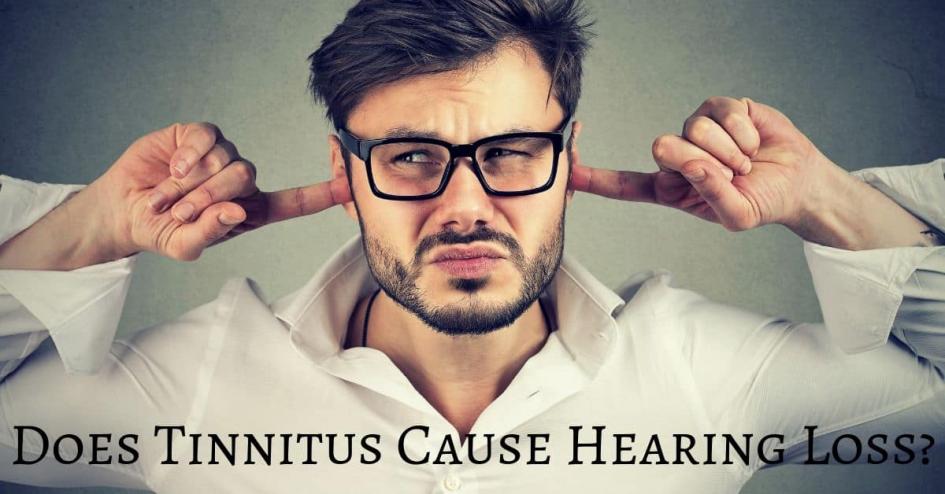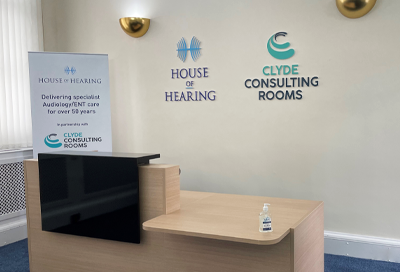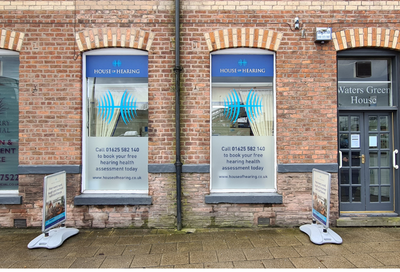
Does Tinnitus Cause Hearing Loss?
Approximately 30 percent of those in the UK will experience tinnitus at some stage in their life, and about 13 percent (over 1 in 8) are living with constant tinnitus. If you've been living with that irritating ringing or buzzing yourself, you may be worried that your hearing health is also being damaged. While it isn't true that tinnitus causes hearing loss, the two circumstances are strongly linked, and if you have tinnitus you are likely to have hearing loss as well.
What happens when you experience tinnitus?
In order to hear, sound waves travel into the ear and the hearing nerves take these signals to the brain. The brain then has to put it all together and make sense of the noise. The ears send a lot of information to the brain because they don't know what's important and what isn't. So the brain is required to screen out a lot of unnecessary' activity' and background sound, such as ticking clocks or traffic noise. This is essential to prevent us from being overwhelmed by the noises around us. If there is a change, such as hearing loss or ear infection, the volume of data sent to the brain changes. The brain then reacts to this difference in data levels by attempting to get more data from the ear, and the additional data that it gets is the sound that we call tinnitus.
The link between tinnitus and hearing loss
Although tinnitus and hearing loss are often connected, one does not trigger the other. Rather, there is the same cause for both tinnitus and hearing loss, so it's not surprising that they often appear together. Indeed, a report by The Ear Foundation revealed that 72% of those with hearing loss experienced tinnitus ‘all of the time’. The survey also found that the more severe the hearing loss, the more severe the tinnitus tended to be. Hearing loss is generally triggered by harm to the inner ear's sensitive hair cells. These hair cells can be harmed by excessive loud noise, disease or infection, or the ordinary wear and tear of your body as it grows older. Some of the sound waves that hit your ear are not identifiable when these hair cells are damaged, and no signal is sent to the brain from the ear to inform your brain about this noise. You experience it as a loss of hearing. As your hearing loss gets worse, or as more cells get harmed, your tinnitus also gets worse, and that's why you might think that tinnitus causes hearing loss.
How to cope with tinnitus
There are several ways you can ease the annoyance of tinnitus: 1. Sound therapy If you have trouble getting nodding off at night, the change from a comparatively noisy daytime setting to bedroom quietness may make the tinnitus noises more noticeable. Some people may find it helpful to mask tinnitus with some low-level noise, from a sound machine or noise app. This is often called sound therapy. 2. Cognitive Behavioural therapy Strategies such as Cognitive Behavioural Therapy (CBT) may be useful either as its own treatment or in combination with sound therapy. By providing methods that can help you cope with anxiety and distress, CBT can aid you in handling the impact tinnitus has on your lives. It enables you to identify your thought process when going through tinnitus, in order to help you reinterpret these symptoms in a more positive way. 3. Hearing aids If you have hearing loss, using hearing aids can be helpful for tinnitus because they are restoring what you can’t otherwise hear, which cuts down on the noise of the tinnitus. Many devices also come with a bank of sounds meant to mask the sound of tinnitus even further.
House of Hearing
If you have tinnitus or are struggling with both tinnitus and hearing loss, please visit us today at House of Hearing. Our experts in hearing health will test your hearing to determine whether your tinnitus comes with a hearing loss. We will also test your tinnitus and suggest treatments to treat your tinnitus symptoms successfully. Don't let your tinnitus take keep you from doing the things you enjoy. Take charge of your hearing health, and finally beat that ringing in your ear!
Our Clinics
All House of Hearing clinics are in town centre locations and accessible to public transport and parking. Home visits also available if mobility is an issue.


.png)

.png)
.png)


.png)
